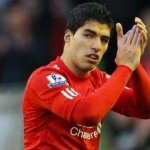Teams have tried for years to slow down the Oregon Ducks, but in the end, it might be the NCAA that forces Oregon to hit the brakes. The program is the subject of an NCAA investigation (yes, another one) that has stretched on for years but might soon cause big problems for college football’s flashiest team.
The investigation, which began in 2011, involves football recruiting violations, primarily the team’s relationship with Texas high school scout Willie Lyles. Last fall, the under-the-radar case surfaced briefly when Oregon announced it disagreed with some of the investigation’s findings. Portland’s KATU News filed a records request back in September to get a copy of the report; six months later, they finally received a copy. (Apparently, no aspect of this investigation is efficient.)
The report details some “major” infractions, including Lyles’ impermissible contact with recruits and the Ducks’ paying for recruiting services like Lyles’ in violation of NCAA rules. KATU’s report notes that several of the findings were heavily redacted but involved other major infractions. The school could also take a hit for “failing to promote an attitude of compliance” and for potentially being “a repeat violator” if the violations occurred within five years of other major infractions.
None of that is set in stone yet. The Ducks couldn’t reach a “plea agreement” with the NCAA based on the report’s findings — the NCAA and university didn’t agree on some of the major infractions or appropriate sanctions — so Oregon representatives will go before the NCAA’s Committee on Infractions to make their case later this spring.
In other words, the situation is still too unsettled for Oregon fans to start panicking, but as the KATU story sheds a little more light on what the Ducks are working against, it’s not looking good, especially since the university and NCAA have already begun to butt heads on the details.
Based on the information we have, it seems the penalties could ultimately be quite severe but then again, if many of the redacted names were “Chip Kelly,” the university could argue that the problem is no longer relevant since the former head coach is now with the Philadelphia Eagles.
It’s unlikely the NCAA would accept that defense. After making a complete and utter mess of its investigation at Miami, the association may decide to try to reassert itself as a legitimate, competent authority by hammering the Ducks. The thing about the NCAA is that you just never know what it’s going to do next.
The UO case, for example, is similar in some ways to the investigation at USC. Both dragged on, and on, and on, and by the time a verdict was reached, no one actually involved in committing the violations was still with the university. The players were long gone, and the head coaches have already jumped to the NFL.
USC’s case resulted in a two-year bowl ban and three years of reduced scholarships, but it would be silly to try to use that as a benchmark for what the Ducks could face. After all, when the Committee doled out its penalties for the Trojans, it said it didn’t operate on the basis of precedent. Each case is supposed to be decided individually, without regard for those at other universities, giving the NCAA free rein to be erratic and irritatingly unpredictable.
The best advice for Ducks fans right now is to hope for the best, prepare for the worst, and expect the NCAA to do something puzzling — just not anytime soon.


















